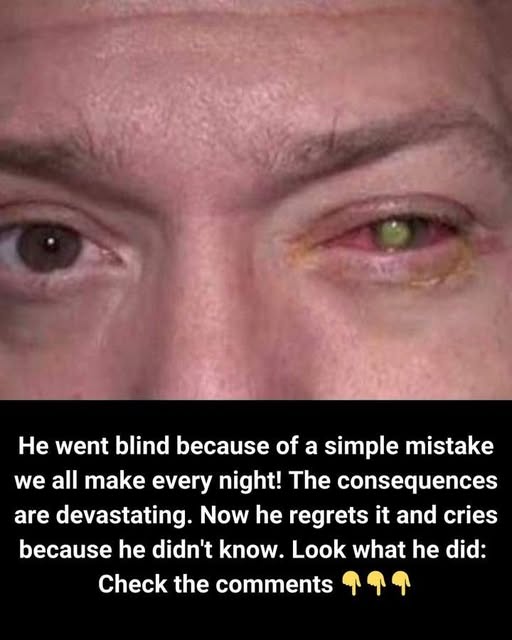For 39-year-old Groeschen, a typical morning quickly turned into a medical emergency. He noticed irritation in his eye, initially brushing it off as minor, but the discomfort worsened over the following days. Seeking medical attention, he was diagnosed at the Cincinnati Eye Institute with a severe infection caused by Pseudomonas aeruginosa, an aggressive bacterium that had formed a corneal ulcer beneath his contact lens.The Danger of Overnight Lens Wear
Groeschen’s habit of sleeping in his lenses, despite claims that some contacts are safe for extended use, was the main cause of the infection. The American Academy of Ophthalmology warns that sleeping in contact lenses dramatically increases the risk of corneal infections. Dr. William Faulkner, who treated Groeschen, emphasized the importance of removing lenses before sleep to maintain eye health.
Impact and Recovery
Even with prompt treatment, the infection caused permanent damage. Scarring of the cornea led to significant vision loss, requiring a corneal transplant. As the owner of a design-based restoration company, Groeschen faced challenges in his professional life, demonstrating how poor lens habits can affect daily life and careers.Tips for Contact Lens Wearers
To protect your eyes:
- Always remove lenses before sleeping unless prescribed for overnight use.
2. Wash hands before handling lenses.
3. Clean and replace storage cases regularly.
4. Use fresh solution each time and follow replacement schedules.
5. Schedule regular eye exams to monitor lens fit and eye health.
Groeschen’s experience underscores the dangers of neglecting proper lens hygiene. Even small, seemingly harmless habits, like sleeping in contact lenses, can have serious and lasting consequences. Staying vigilant, following hygiene practices, and consulting eye care professionals are essential for preserving vision.



